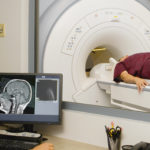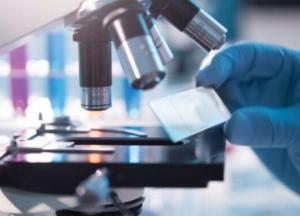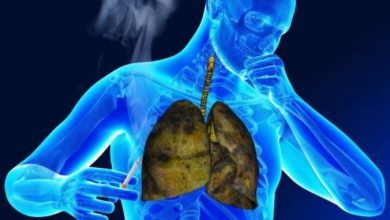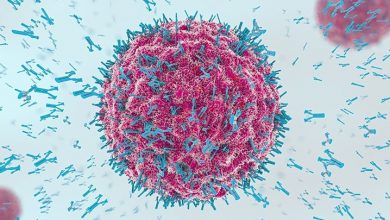9 Myths About Brain Tumors You Shouldn't Believe
The content of the article
- Brain tumor is cancer
- Brain tumor is incurable
- Only the malignant tumor needs to be treated
- Parents are to blame for the appearance of a tumor in a child
- Brain surgery is painful and dangerous
- Hair will not grow back after chemotherapy
- I can't get better if I don't have enough money
- After treatment I will not be able to live a normal life
- I will not be able to study or work fully after brain surgery
Brain tumor is cancer
Enje Valiakhmetova, pediatric oncologist at the National Scientific and Practical Center for Neurosurgery named after. Academician N.N. Burdenko: “In fact, it is incorrect to call most primary brain tumors cancer, because such tumors are a complex structure formed primarily from glial cells, less often neuronal ones. While cancer is a tumor that is formed from epithelial tissue cells. In addition to cancer, among malignant neoplasms there is also sarcoma, a tumor formed from connective tissue cells.”
Brain tumor is incurable
Boris Kholodov, leading researcher at the National Scientific and Practical Center for Pediatric Hematology, Oncology and Immunology named after. D. Rogacheva, coordinator of the pediatric neuro-oncological service of the National Scientific and Practical Center for Neurosurgery named after. Academician N.N. Burdenko: “This myth stretches from the depths of centuries, when it was true. Thanks to the emergence and development of neuro-oncology, he should have died at the end of the twentieth century, but positive information, unfortunately, reaches the “consumer” much slower than all sorts of nightmares. In addition, there are still very few specialists in neuro-oncology capable of generating this information. But there are a lot of clever amateurs - that’s why the myth lives on.
Let’s drive it away with simple statistics: even with disgusting, late diagnosis, and not the most modern treatment, more than half of children with brain tumors in Russia today are “doomed” to recovery. At the same time, fortunately, both treatment approaches and the organization of healthcare are improving. Therefore, we, pediatric neuro-oncologists, set the bar very high. For example, until recently, twenty years ago, childhood leukemia - a malignant blood disease - was considered fatal. Now - 90% (and even more!) of patients are cured. We, neuro-oncologists, aim for the same indicators.”
Only the malignant tumor needs to be treated
Andrey Levashov, researcher at the Department of Chemotherapy for Hemablastosis with the Neuro-Oncology Group of the Russian Oncology Research Center named after. N.N. Blokhina: “Of course, treatment should also be carried out in patients with benign tumors, since the consequences of benign tumors can also be fatal.
Even if the tumor is benign and grows slowly, but it puts pressure on the brain structures that regulate the vital functions of the body, it is life-threatening. Moreover, in the absence of proper treatment, benign neoplasms can change their nature and acquire malignant features.”
Parents are to blame for the appearance of a tumor in a child
Boris Kholodov: “According to modern ideas, tumor diseases do not have one clear and understandable cause. They are, as we say, multifactorial in origin. That is, they arise as a result of a combination of a whole “heap” of various factors. Therefore, it is absolutely pointless to causally link a child’s cancer to any person, including the closest relatives and parents.
Moreover, every year the results of treatment of this severe pathology are improving. This means that there is no need to engage in “digging” in the past and empty self-flagellation, this is a waste of energy. And you need strength when you need to move forward to overcome an illness. Trust the doctors and have no doubt: they will help you and your baby become healthy and enjoy life again.”
Brain surgery is painful and dangerous
Mikhail Zemlyansky, neurosurgeon at the Department of Neurosurgery at the Morozov Children's City Clinical Hospital: “The vast majority of brain operations are performed under general anesthesia, which makes surgery painless.
The operation is associated with certain risks and complications, regardless of the country and clinic where surgical treatment is performed. The risks of surgical complications are approximately 3-5% and depend on the degree of involvement in the tumor process of functionally important areas of the brain (cortical representations of speech, limb movements, subcortical nodes, brain stem) and the great vessels supplying the brain.
Modern neurosurgery equipment - microscope, endoscopy, intraoperative navigation, neurophysiological monitoring - allows surgical treatment to be performed with maximum safety and radical tumor removal . Of course, the early postoperative period is accompanied by pain, which, however, can be successfully relieved with modern analgesics.”
Hair will not grow back after chemotherapy
Enje Valiakhmetova : “As a rule, hair begins to grow back within a month after the end of treatment. Over the course of a year, they grow by an average of 15-20 cm. In some cases, hair growth resumes later. This, for example, happens with high-dose chemotherapy , but the process itself is still restored.
I can't get better if I don't have enough money
Mikhail Laskov, oncologist, hematologist, founder and managing partner of the Outpatient Oncology and Hematology Clinic and the University Headache Clinic: “Money, of course, greatly helps to increase the speed and quality of diagnosis, to obtain the best and most modern drugs, but to say that in the absence of money it is impossible to recover would be a gross exaggeration.
It would be more correct to say this: most types of cancer at an early stage can be cured for free, but most types of cancer at an advanced stage are difficult to cure even for money. No amount of money can replace a quick and focused personal immersion of the patient into the problem. The chances of recovery or maximum prolongation of life with a good quality also greatly depend on this.”
After treatment I will not be able to live a normal life
Irina Deryabina, head of the “Happiness Therapy” program (rehabilitation programs for children with brain tumors) of the Konstantin Khabensky Charitable Foundation: “After a complex brain operation and subsequent difficult treatment of brain tumors, every person, including a child of any age, faces with certain physical and psychological problems. All of them can be corrected with the help of various rehabilitation programs.
Disturbances can be of a different nature, most often these are neurological problems, changes in endocrinological status, motor and coordination disorders, and others similar to lesions due to stroke and head injuries.
You need to understand that completing treatment is an important, but not the last step in the fight against the disease. It is important for everyone to choose a specific rehabilitation program under the supervision of an oncologist. One needs to be taught to walk again, the other needs to be helped to cope with loneliness or other psychological problems. The child is given the opportunity to work with a speech therapist and improve the school curriculum, and the adult is given the opportunity to correct speech disorders or restore family relationships.
There is the possibility of both outpatient sessions with specialists and remote sessions - for example, via Skype - if the required doctor is not found in the city. In the Foundation’s practice, there are real examples of a child who has had a brain tumor returning to sports, and successful cases of studying in gymnasium classes and music schools.”
I will not be able to study or work fully after brain surgery
Milana Parshkova, a student at the RUDN Medical Institute, suffered a brain tumor 10 years ago: “I was diagnosed with a brain stem tumor when I was 11 years old. It all started quite abruptly, and I quickly found myself on the operating table. The post-operative period was quite difficult - dressings, injections, learning to walk again. Plus, chemotherapy and radiation therapy were taking their toll. But I knew it was temporary.
The main thing is not to think about the totality of problems that have arisen, but to think about how much is still ahead and what you yourself can do. I had to make up for lost time at school, there were also attempts to bully me, but the offenders achieved nothing. After all, if a person is confident in himself and his abilities, then it doesn’t matter what his envious people think about him.
I worked out every day so that my body started working the way it needed to. It doesn't have to be long or hard, you just need to find the right motivation. As a result, I graduated from school with only a few B grades and entered a medical school on a budget. Yes, it wasn't easy, but that's okay. Now I'm in my fifth year, I'm no different from my classmates. On the contrary, everyone respects me for my approach to any situation.
What I want to say: if you start having health problems and it seems to you that this is the end (even if doctors say so), then don’t think so, but strive for the best. In any case, you will not lose anything, but only gain. But what exactly and in what quantity depends on you.”
Please rate the article:





